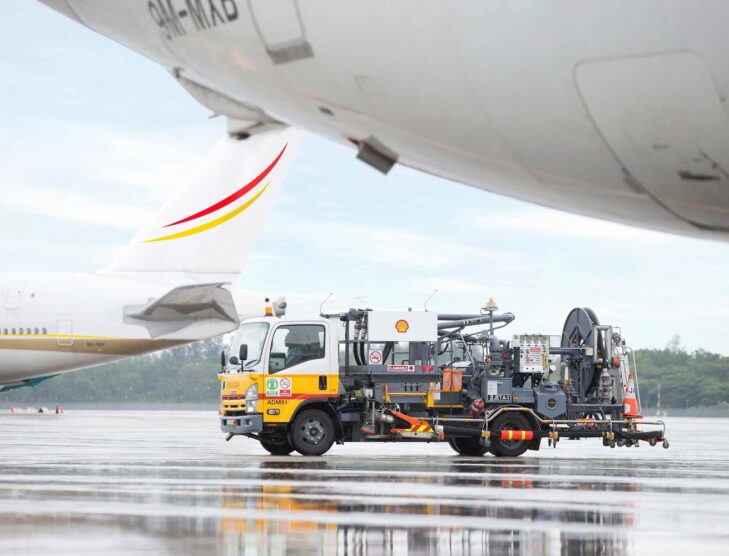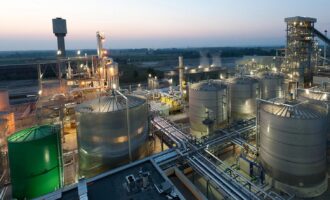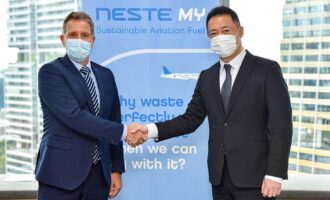
Shell completes facility upgrade to blend SAF in Singapore
Shell announced that it has become the first supplier of sustainable aviation fuel (SAF) to customers in Singapore. Shell has also completed the upgrading of its facility in Singapore which will enable blending of SAF in Singapore.
In its neat form, SAF can reduce lifecycle emissions by up to 80% compared to conventional fuel. However, sustainable aviation fuel is approved for use in aircraft operating today only when blended in a ratio of up to 50% with conventional jet fuel.
Having a blending facility in the region enables a more efficient operation by moving neat SAF in bulk from production sources to the blending facility and then delivering blended SAF parcels to where it is needed.
The announcement represents a significant milestone for the aviation industry in Asia, as the enhanced SAF supply chain capabilities increase customer’s access to SAF, and follows the selection of ExxonMobil to supply blended SAF, in a pilot project, to Singapore’s Changi Airport.
“We are committed to working actively with airlines, industry players and government agencies on the adoption of SAF with the goal of advancing Changi Airport as a sustainable aviation hub,” said Lee Seow Hiang, CEO, Changi Airport Group (CAG).
The first batch of Shell SAF, made from waste products and sustainable feedstocks, and blended with conventional jet fuel in Europe aims to test and verify the supply chain for SAF that Shell has established in Asia. Shell seeks to commence blending at its Singapore facilities for subsequent batches. Building supply chain capabilities to blend, handle and distribute sustainable aviation fuel is critical in enabling more customers access to SAF.
“Today’s announcement is an example of how we are building the capabilities now to accelerate the use of SAF in Asia. We want to become a sustainability leader in this important market. Alongside investing in our capabilities to produce SAF, we are also focused on developing the regional infrastructure needed to get the fuel to our customers at their key locations. Through leveraging our extensive refuelling network, I am proud that we are helping our customers to decarbonise by becoming the first supplier of SAF in Singapore,” said Jan Toschka, Shell Aviation’s global president.
Shell has announced its ambition to produce around 2 million tonnes of SAF a year by 2025 globally. To support this, Shell outlined plans for a biofuels facility, subject to final investment decision, at the Shell Energy and Chemicals Park Singapore. The facility has the ability to produce 550,000 tonnes of low-carbon fuels a year, including SAF.









